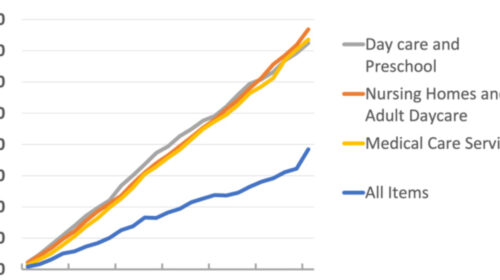Nancy Folbre

The Value of Valuation
Assigning a market value to non-market work can be risky, but it calls attention to the economic contributions of unpaid care.

Capital for the Kids
A quick look at small moves toward a guaranteed basic income for kids in the U.S. and Canada.

Little Kids vs. Big Business
Current U.S. Congressional efforts to expand the Child Tax Credit offer telling insights into the partisan divide.

Taxing the Stork
New empirical research reveals why European family support policies, while far more generous than those of the U.S., are not as “pro-parent” as they claim to be

The U.S. Child Care Crunch
Stripped of support provided during the pandemic, the child-care industry is cracking up

CryptoCare©
Perhaps you’re curious to know—just hypothetically–how far the current value of global cryptocurrency could go toward increasing the supply of child care in the U.S.

Podcast: Undervaluing the Work of Care
Check out this wide-ranging, international, and interdisciplinary discussion of the many reasons why care work is undervalued.

Claudia and Care
Hearty applause for the honor paid to this year’s winner of the Nobel Prize for Economics should be combined with a critical look at her work.

Precarity and Care
Far from opposites, care and precarity are deeply entwined both etymologically and historically. Now, the increasing precarity created by current labor markets fosters a higher demand for care.

Care Talk 2.0
Welcome to Care Talk 2.0! In February 2008, economist Nancy Folbre launched the original Care Talk blog to reflect on research and policies regarding paid and unpaid carework. Written in a style that made material accessible to journalists, policymakers, and students as well as more seasoned researchers, the blog began with a focus on how to measure the economic contributions of unpaid care, the limitations of commercial models for care provision, and the problems that plague US systems of care provision.

The Escalating Cost of Care Services
Price of three major care services–day care and preschool, nursing homes and adult daycare, and medical care services, have risen much faster since 1998 than the price of the “all items” basket of goods and services that serves as the primary benchmark for analysis of inflation

Justice in the Balance
Instead of trying to walk the tightrope known as work family balance, maybe we should seek work family justice—something we all deserve rather than something we are easily blamed for not achieving on our own.